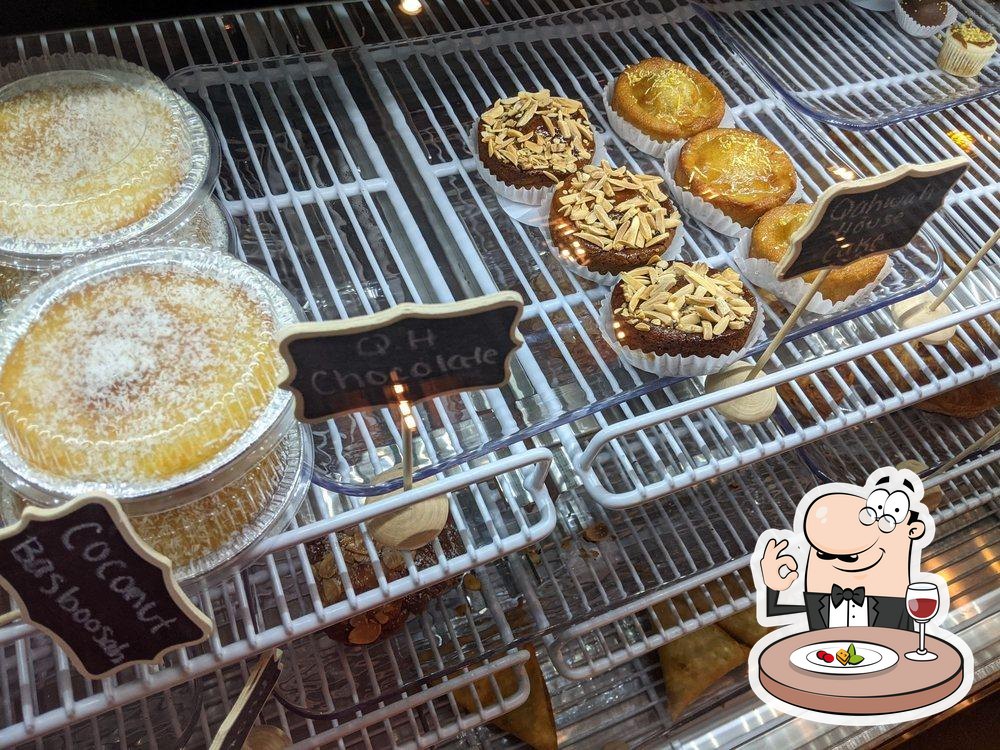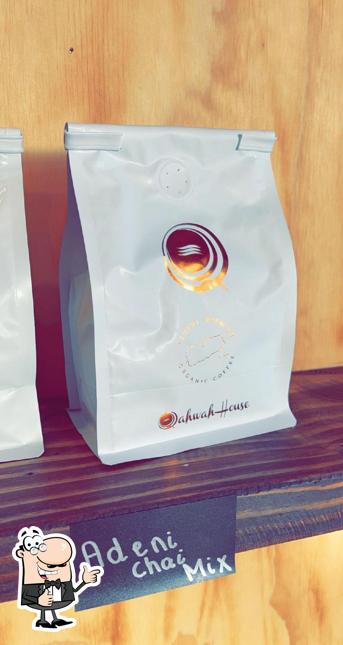Table Of Content
- How Workers Call The Shots At This West Village Bar
- The Fast-Casual Bowl Spots Are Cannibalizing Each Other
- A Dozen More Restaurants Close in New York City
- Minutes With Ibrahim Alhasbani of Qahwah House
- Exploring the Authentic Experience at Qahwah House
- The top things to do on an I-95 road trip
- Find out what's happening in West Villagewith free, real-time updates from Patch.

"It's finally here!!!" read one TikTok user's post with nearly 30,000 views. WEST VILLAGE, NY — A new spot opened in the West Village this week that promises to be slinging cups of coffee and chai late into the night. Used by the ancients to clean and protect wounds, expedite the healing process and eliminate infection and disease, honey is still widely respected by both practitioners of alternative medicine, consumers and many doctors. In the outskirts of Detroit in Dearborn, Mich., you will find the world’s finest Yemeni coffee. Here, you’ll also meet Ibrahim Alhasbani—the founder, owner, roaster, and barista behind Qahwah House, which means “coffee” in Arabic.
How Workers Call The Shots At This West Village Bar
Yemenis in Brooklyn Reclaim High-End Coffee - The New York Times
Yemenis in Brooklyn Reclaim High-End Coffee.
Posted: Sat, 13 Nov 2021 08:00:00 GMT [source]
Or, use our Community Guide to help you in your search for Los Angeles real estate listings. Our community searches will keep you up to date with the latest properties in the areas you are interested in. Use our state-of-the-art property search, including an interactive map search, to find homes for sale in Los Angeles, CA. For lunch or dinner, make sure to indulge in their savory dishes, like the flavorful Lamb Kofta or the mouthwatering Falafel Wrap.
The Fast-Casual Bowl Spots Are Cannibalizing Each Other
Hell's Angels became the most heralded film event of 1930, earning laudatory reviews and doing a brisk business at the box office. As fine a home as it truly was, however, it is hard not to note the coincidence of its location literally less than a block away from the much smaller home of Hughes's Uncle Felix. He may have insisted on the far grander Fudger house to ensure that his estranged relatives would have to see physical proof of his material success on a daily basis. Initially renting the estate, beginning in 1928, Hughes later bought the house outright from Fudger for a reported $135,000, and it would remain his principal residence over the tumultuous decade and a half to follow. They found a beguilingly picturesque estate with a 30-room hacienda that had been designed by Roland E. Coate, Sr.
A Dozen More Restaurants Close in New York City
He enjoys illuminating little-known facts, such as the origin of the mocha—it began not as a chocolate-espresso beverage but as beans with a natural chocolate flavor, exported around the world from the port of Mocha in Yemen. Coffee and nightlife spot for young Muslims, Qahwah House, which first opened in Dearborn, Michigan in 2017, and later landed in Williamsburg, is reportedly opening its first Manhattan outpost on July 8. The new Qahwah House is opening at 13 Carmine Street, near Bleecker Street, in the West Village. The coffee house specializes in coffee beans sourced from Yemen and its sweet honeycomb-shaped bread called khaliat.
Additionally, take some time to soak in the relaxing ambiance and admire the beautiful Middle Eastern decor while you’re there. For Alhasbani growing up in Yemen, coffee was more than a drink; it was a lifestyle. He says he can still remember the aromas of the beans his mother would roast and grind by hand at home. Alhasbani is committed to keeping things fresh, roasting beans at least every other day. Daily Provisions on the Upper West Side is an excellent all-day cafe that’s one of the best places in the neighborhood for a quick meal.

Add to that the belief that Yemen is the origin of the first coffee plant in the world, and you have a story rife with symbolism. It is said that coffee originated from Yemen’s Port of Mokha in the 14th century, and for nearly 200 years after that, Yemen remained the sole distributor of coffee. The succès d'estime of Hell's Angels made Hughes the toast of Hollywood and brought the acceptance that had previously eluded him. Although never comfortable in such settings, Hughes became a much sought-after guest at important Hollywood functions, where he could usually be seen off in a corner with one of the screen's great beauties. His most enduring romantic liaison during this period was with Katharine Hepburn, with whom he shared a passion for flying and golf, and the pair could often be seen stepping through the gate at the rear of Hughes's house to play an impromptu round on the adjacent links. Hughes's mania for Hell's Angels became the talk of Hollywood, and, as the budget continued to climb to record numbers, many believed the film might actually break the ambitious young filmmaker.
Historic Richmond Town
"It's not just about coffee. It's a story. It's not just about money. It's a message I want to send to everyone." A conversation starter is the large map covering one wall that traces coffee's origins and trajectory across the globe. "The first people to find coffee, brew coffee, and make coffee were from Yemen," he said. A native of Sana'a, Yemen, he's importing beans from his family's farms to Williamsburg, the second location for his café Qahwah House, which began in Dearborn, Michigan. Breads Bakery is a bakery and cafe near Central Park on the Upper West Side.
Ostensibly, the Fudger house, with its handsome cantilevered balcony running the length of its central mass, was evocative of the houses of old Monterey. In actuality, however, Coate looked to Southern California for his inspiration, modeling the Fudger house on some of the grand haciendas built around the region during the Spanish and Mexican periods. Hughes's relatives were not alone in their disapproval of his ambitious plans. The general belief around Hollywood was that the young millionaire was about to prove the old adage about a fool and his money.
Yemen is considered by some to be the birthplace of coffee — the Arabic word qahwah is the origin of the word coffee — and some consider brews from their distinctive beans to be the best in the world. With this situation in Yemen it’s hard to bring coffee beans to the U.S.A. It’s a challenge, but you have to take a risk. The coffee there is grown organically in higheraltitudes and prepared using natural methods.
Here at the coffee shop, I use the same recipes my ancestors and family used to prepare the traditional Yemeni drinks. People from all over Michigan and the United States come to enjoy our coffee, and many comment that it’s like nothing they’ve ever tried before. When visiting qahwah house for the first time, it’s also a great idea to take advantage of some of their amenities. Whether you want to relax with a book in their cozy seating area or catch up on work using their free Wi-Fi, qahwah house provides everything you need for a comfortable and enjoyable visit. He regularly encounters people who haven't heard of his native country, let alone understood its coffee culture.
The origins of qahwah can be traced back to the Ethiopian plateau, where the coffee plant, Coffea Arabica, is believed to have been discovered. From there, qahwah spread throughout the Middle East, eventually becoming a staple in Arab culture and an integral part of social interactions. Our team takes pride in serving only the finest quality coffee and tea, as well as a delectable selection of pastries and light bites. Whether you’re looking for a quick caffeine fix on-the-go or seeking a relaxing spot to unwind with friends, Qahwah House offers a welcoming atmosphere that caters to every individual need. If you’re a first-time visitor to qahwah house, there are a few things you must try to make the most of your experience. Start off by sampling some of their signature coffee blends, such as the aromatic Arabian Mocha or the bold Turkish Coffee.
If you’re looking to spend under $15 on a delicious meal near the Lower East Side, Dominican spot Sandy’s Coffee Shop needs to be on your radar. And yet, the khaliat alnahl from this new Yemeni coffee spot in Williamsburg took that trifecta to a whole new level. The pastry is stuffed with cream cheese, toasted in the oven, and then drizzled with honey right when it comes out of the oven.
But when his third picture, 1927's Two Arabian Knights, became an unqualified smash, it made the doubters reassess their initial impression. It also gave Hughes and his wife, Ella, the impetus to leave their bungalow at the Ambassador Hotel for more permanent quarters. This Upper West Side museum explores human cultures, the natural world and the universe beyond. Home to baseball's 27-time champs, the new Yankee Stadium was built in 2009 across the street from its former location. This expansive open-air night market celebrates the rich cultural diversity of NYC.
Apocryphal though it may be, the story does manage to capture the spirit of what we have come to know about the young Hughes—bold, impetuous, erratic, with a manifest brilliance. He demonstrated early the type of behavior that was to help make him one of the most compelling figures to emerge in the 20th century. As an accompaniment, traditional Yemeni pastries are baked in-house and drizzled with raw honey derived from the nectar of Sidr trees in Yemen. The menu includes specialty brews such as Jubani—named for the Yemeni district of Juban—which blends medium and light roasts with cardamom, ginger, and cinnamon. If you want to enjoy a cup of Yemni coffee — or make some friends — head over to 13 Carmine St. Co-owner of the Williamsburg shop, Talal Alsabdi, told Insider that the coffeeshop is "more like a community place for people to come and hang out, family to sit down. It makes us very special."
It was to be the peak of his popularity, a last cloudless vista before the long nightmarish descent into madness began. Owner and eighth-generation coffee farmer Ibrahim Alhasbani opened the first Qahwah House in Deerborn, MI in 2017, followed by a Williamsburg outpost in 2020. And in two short years, that Bedford Avenue spot has become a major gathering place for the Muslim community, according to Insider. Originally, we are from Yemen where we were born and raised amidst coffee plants.Our expertise originates from a long line of ancestors, all committed to the tradition and innovation of coffee. She has bylines in publications such as Barista Magazine, Unearth Women, World Nomads, and more. She is an avid traveler, and her favorite way to explore a new place is through its local coffee scene.
Stop in to try some of their other pastries and one of their pour-over coffee options. That last point is a sort-of joke in the Muslim community, not one officially endorsed by the cafe, because it's a place where Muslim men and woman feel comfortable making new friends and talking with strangers, Insider wrote. A Yemeni immigrant, Ibrahim has been roasting and brewing coffee in Dearborn for two years. But not just any coffee—he imports all his beans directly from his own family farm that he grew up on in Yemen. With political disturbances in Yemen, Ibrahim has had his fair share of challenges in importing, but he perseveres. His constant absences from the house on Muirfield Road proved too much for his wife, who finally left him.

No comments:
Post a Comment